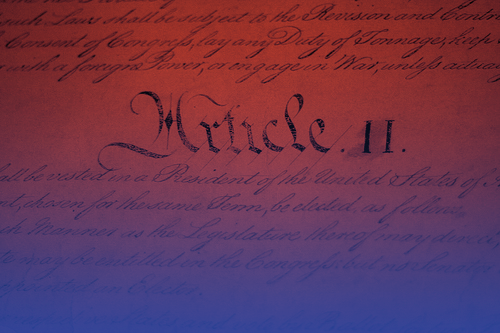Ben Berwick leads Protect Democracy's Election Law & Litigation Team. In that capacity, he oversees the organization's work to ensure that American elections are free and fair.
No “Absolute Right” to Control DOJ: Constitutional Limits on White House Interference with Law Enforcement Matters
- March 8, 2018

In a New York Times interview, President Trump claimed an “absolute right to do what I want to do with the Justice Department.” But Article II of the Constitution does not grant the president unlimited authority to decide how the law is enforced against specific parties.
In a constitutional democracy, those in office should not wield state power to benefit political allies and punish opponents. In keeping with this principle, for 40 years, administrations led by both parties have maintained policies limiting contacts between the White House and the Department of Justice (DOJ) on law-enforcement matters involving specific parties.
These policies reflect constitutional principles. In short, in the context of Article II and the Take Care Clause, it is constitutionally appropriate for the president to set generally applicable policies and priorities to enforce the laws that Congress has enacted. But in most cases White House intervention in DOJ’s handling of a specific enforcement matter will run afoul of constitutional constraints. And White House interventions based on the president’s personal or corrupt interests are always unconstitutional.
The constitutional analysis in this white paper expands on those points and has four practical applications. It (1) negates President Trump’s defense to potential obstruction charges, (2) offers a defense to parties harmed by White House interference, (3) provides a constitutional framework for legislation, and (4) seeks to deter criminalization of the president’s political opponents.
Related Content
It can happen here.
We can stop it.
Defeating authoritarianism is going to take all of us. Everyone and every institution has a role to play. Together, we can protect democracy.
Donate
Sign Up for Updates Sign Up for Updates
Explore Careers Explore Careers
How to Protect Democracy How to Protect Democracy




